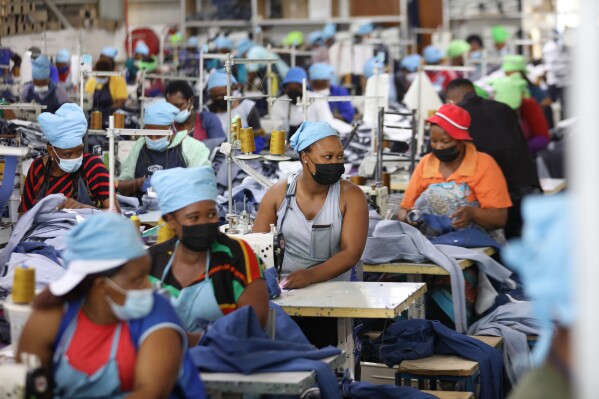
Lesotho is seeking new textile buyers in Asia and beyond after being hit by tariff uncertainty under U.S. President Donald Trump.
- Lesotho is pursuing new textile buyers due to tariff uncertainty under U.S. President Donald Trump.
- While tariffs on Lesotho’s goods have been reduced to 15%, concerns remain regarding competitiveness against nations like Eswatini and Kenya.
- The textile sector, Lesotho’s largest private employer, supports significant direct and indirect employment.
- Lesotho declared a state of disaster due to economic issues arising from U.S. tariff changes and seeks further negotiations.
Lesotho is seeking new textile buyers in Asia and beyond after being hit by tariff uncertainty under U.S. President Donald Trump.
The country has already secured business from neighbouring South Africa, with the Southern African Customs Union, which includes Botswana, Eswatini, Namibia, and South Africa, emerging as a priority market, Bloomberg reported.
After a three-month pause, U.S. levies were lowered to 15%. While an improvement, “it is not good enough for our textile industry,” Trade Minister Mokhethi Shelile said, warning that buyers may shift to competitors like Eswatini and Kenya, whose goods face only 10% duties.
Last month, the landlocked lower-middle-income country declared a national state of disaster in response to the severe economic fallout from newly imposed U.S. tariffs.
DON’T MISS THIS: List of African countries affected by Trump’s new tariffs
Textiles remain Lesotho’s largest private employer, supporting 12,000 direct and 40,000 indirect jobs, with major U.S. buyers including Walmart, JCPenney, and Levi Strauss.
The government is pushing for tariffs of 10% or less and hopes for further talks with the U.S. Trade Representative as it diversifies beyond its main export market.
Like Lesotho, South Africa seeks new markets
Lesotho is not alone in seeking alternative markets. South Africa, facing one of the world’s steepest levies, a 30% tariff, is likewise turning to new buyers to sustain its exports.
South African Trade Minister Parks Tau called the tariff escalation a direct threat to the country’s export-driven sectors, particularly automotive manufacturing, agro-processing, steel, and chemicals.












